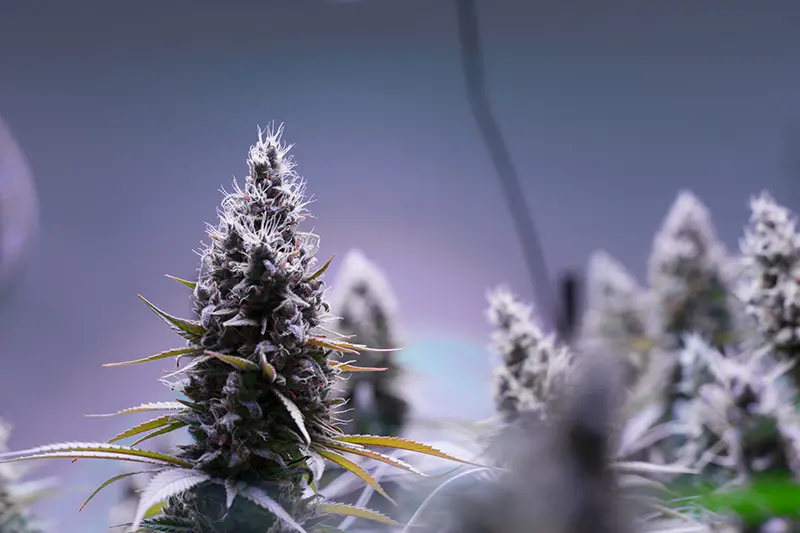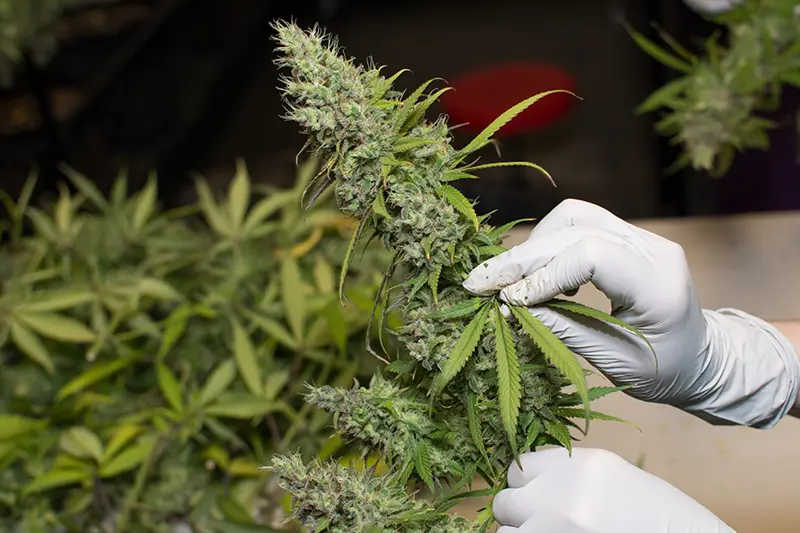blog post
THC vs. CBD
Understanding THC vs. CBD: How They Affect the Brain and Body
As cannabis potency has surged over the years, understanding the effects of its key compounds—THC and CBD—is more important than ever. In the 1970s, cannabis typically contained around 3-5% THC, but today, dispensary strains often test at 20-30%, making it essential to know how these cannabinoids interact with the body.
How THC Works: The Endocannabinoid System

Tetrahydrocannabinol (THC) is the primary psychoactive compound in cannabis, interacting with CB1 and CB2 receptors in the endocannabinoid system. These receptors are found throughout the brain, including the frontal cortex (decision-making), hypothalamus (hormone regulation), hippocampus (memory), amygdala (heart rate/breathing), and basal ganglia (movement and cognition). Because these areas control various functions, THC can produce a wide range of effects.
How CBD Works: A Different Mechanism
Unlike THC, cannabidiol (CBD) has a low affinity for CB1 and CB2 receptors. Instead, it influences other systems, such as serotonin receptors, which may explain its calming effects. CBD also prevents the breakdown of anandamide—a naturally occurring cannabinoid linked to mood regulation—allowing it to stay active longer. Additionally, CBD stimulates the release of 2-AG, another endocannabinoid that supports immune responses and interacts with CB1 and CB2 receptors.
How the Body Metabolizes THC and CBD

When consumed orally, THC converts into 11-OH-THC, a highly potent metabolite that makes edibles feel stronger and longer-lasting compared to smoking. On the other hand, CBD inhibits liver enzymes known as cytochrome-P450, which are responsible for metabolizing various substances. This can affect how THC or certain medications (such as SSRIs or blood thinners) are processed in the body.
The Entourage Effect: Why THC and CBD Work Better Together
One of the most intriguing aspects of cannabis is the entourage effect—the idea that cannabinoids work synergistically to enhance therapeutic benefits. CBD, for instance, can counteract some of THC’s stronger psychoactive effects, such as anxiety and paranoia. Since THC binds to fat cells and remains in the body for extended periods, combining it with CBD may help balance its impact.
Final Thoughts
While THC and CBD function differently, their interaction enhances cannabis’s overall effectiveness. Whether seeking pain relief, relaxation, or improved sleep, understanding these compounds can help users make informed choices.
